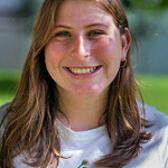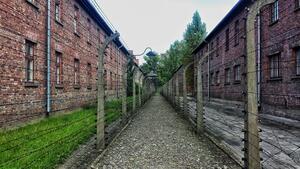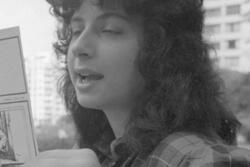A New Take on the Holocaust Experience
My knowledge about the Holocaust is extensive. I’ve attended Jewish day school my whole life, and my grandfather is a survivor. I even spent a week in Poland with my senior class visiting Auschwitz-Birkenau, the Lodz cemetery, Chełmno, and other Holocaust memorials. However, while developing an independent study project about feminism within Jewish literature for my Advanced Jewish Literature class earlier this year, I delved deep into an aspect of the Holocaust I hadn’t previously explored.
I read Cynthia Ozick’s, The Shawl, a novel about a woman's traumatic experience in the Holocaust. In reading Ozick’s thoughtful insight about the double victimization women faced during World War II, I realized that my Holocaust education was indeed lacking. Through The Shawl, Ozick brings to light experiences of the Holocaust that are rarely shared, as male authors like Elie Wiesel and Tadeusz Borkowski are often viewed as arbiters of life during the Holocaust.
The novella follows the life of Rosa Lublin, a Holocaust survivor who lost her newborn daughter in the camps. Magda, Rosa’s daughter, is described purely physically. The text says, “It was another face altogether, eyes blue as air, smooth feathers of hair nearly as yellow as the Star sewn into Rosa’s coat. You could think she was one of their babies.” Ozick, the narrator, explains that Magda has a “different face altogether,” suggesting that she is the product of Rosa’s rape by a Nazi officer. In this way, The Shawl explores the subjects of sexual assault and stripped motherhood, both distinctly female experiences.
A few months after reading Ozick’s novella, my senior class headed to Poland to further learn about this devastating chapter of our people’s history. As we walked under the infamous sign at the entrance of Auschwitz that reads, “Arbeit Macht Freit” (Work Sets You Free), our tour guide stopped us and told us to take a look at the brick building to our left. He explained that there was a “dark side to the Holocaust that no one ever really speaks about.” The building we were looking at was a brothel, in which female prisoners were forced into sex slavery as rewards for the working prisoners.
As I reflect back on my years of Holocaust education and week-long trip to Poland, I’ve arrived at an important conclusion: When learning history, it’s crucial we put in the extra time and effort to learn about the true multiplicity of experiences. We must avoid the tendency to use a single story or perspective to define the nature of something. This life lesson speaks to the need for diverse representation, and the value of engaging with less well-known stories and perspectives.
This piece was written as part of JWA’s Rising Voices Fellowship.







